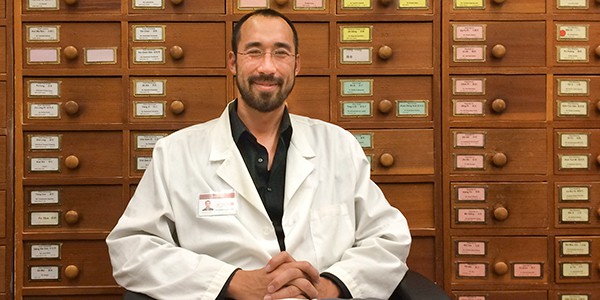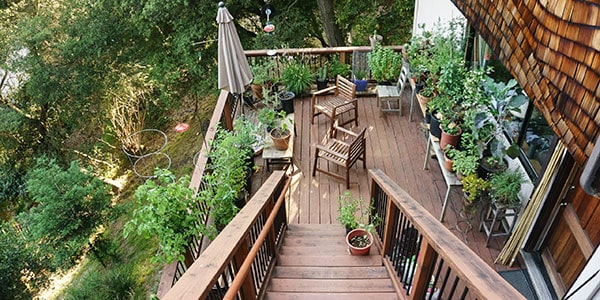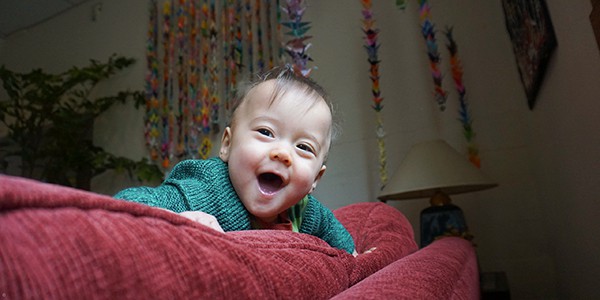The Unconventional Journey of Stanley Wu
by Kyra Epstein, Commonweal Communications
Leaving school while studying abroad in his early 20s, Stanley Wu found himself immersed in a small ecovillage far off the grid in the Holland countryside. Without electricity or running water, using candles at night, and surrounded by community, he was surprised by an overwhelming sense of peace and happiness.
As the son of two immigrants, a self proclaimed out-of-the-box thinker, and someone who never felt like he quite fit in, he was looking to find other ways of living and being. With only the material possessions in his backpack and no modern luxuries, he felt light and inspired living in the small, 17-person community. They grew their own food, made their own yogurt (to preserve milk from a nearby dairy without a refrigerator), had composting toilets, and bathed in a claw-foot bathtub built on stilts above a fire pit surrounded by cottonwoods.
“The remarkable part of this experience,” Stan says, “was that I was working directly for my sustenance, without intermediary banks and markets to translate my labor. My experience in the ecovillage showed me a different way to be in the world and clarified guidelines for my life. I realized that any work I did in the future had to add value directly to people’s lives, be a skill I could travel with, and ultimately contribute to social well-being,” he says.
Back in the United States, Stan found a new home at Breitenbush Hot Springs, an intentional community and worker-owned cooperative off the grid and on 154 acres in the mountains of western Oregon. Stan joined the Systems Team that managed all the utilities of the small town, including a micro hydro-electric power station, water treatment, and geothermal system that provided heat to 70 community members and up to 200 guests.
With miles of underground piping, electrical cables, pumps, timers and switches, Stan helped maintain, operate, and balance the various interdependent and critical systems. “I showed up without any skills, and Josh Devries, Jeff Mangers, and Bruce Johnson took me under their wings and taught me how to work with materials and think about dynamic systems,” Stan says. “Soon I was testing our assumptions and creating schematics that did not exist, planning infrastructure changes, and obtained my licenses to operate municipal water treatment plants.”
His four years at Breitenbush was another step into a resilient lifestyle, teaching him more than just how to build and deliver power, water, and heat. Together, he says, the community explored new ways to live in a community and society.
“We reinvented the social contract, the way conflict was resolved, and other basic elements that influence how we relate to each other―which also came with its own emotional and logistical challenges,” he says. “It was a period of deeply meaningful relationships and profound experiences. There were more than a few intense situations, but ultimately the business and community explored ways to prioritize our humanness, which was extraordinary.”

After Breitenbush, Stan moved to Berkeley, joining a community calling themselves the House of Health and Social Justice. He worked for Sun Light and Power as a foreman, installing solar thermal and photovoltaic systems. After a few years, he found himself wanting to move back into a more personal way of helping people, and he decided to go back to school and study Traditional Chinese Medicine―eventually earning his doctorate.
Around that time, Stan met his future wife Shorey Myers, dancing Argentine Tango. And he met Michael Lerner when he spoke at the couple’s wedding.
Now Stan and Shorey live in Oakland with their 16-month-old daughter Sierra Rose. They share a house and small community with a family that he met at the house of Health and Social Justice. Their shared household has a focus on resilience, and their social infrastructure is a big part of that, Stan says.
“There are so many forces in modern life that push us to isolate. It can be challenging to stay connected with friends and have shared experiences, especially now in times of COVID,” he says. “To share meals and have random unscheduled, unstructured time with friends and family is the most important system in our lives right now.”

They grow vegetables, fruit, and flowers in an extensive container garden on their deck. They store drinking water and have earthquake kits and supplies. They have a vacuum-sealed food system for long-term storage, and Stan is studying for his amateur radio license that will be valuable in emergency situations. They have a battery system for power outages, and Stan taught himself how to install a home network and wired ethernet to the entire house so they can turn the wifi off and still use high-speed “wired” technology for Zoom calls―where he spends a lot of time these days.
“When Michael asked me to help with The Resilience Project in 2019, it was a big turning point for me,” Stan says. “It was the right thing at the perfect moment,” he says.

As coordinator for OMEGA Resilience Funders Network and The Resilience Project at Commonweal, Stan’s experience working with resilience systems―and social infrastructure―has been invaluable. OMEGA is focused on building a learning community for funders and developing a shared understanding of the Global Challenge and the larger context within which sector-specific grant making unfolds. The goal is to infuse all of the work with an understanding of the global crisis and the drivers behind it, elevating the field of resilience.
The Resilience Project works with a broader group of stakeholders and collaborators, but with the same goal: to make sense of what is happening globally as it impacts us locally, and to co-create meaningful adaptive measures and practices. The Resilience Project is also focused on developing site-specific resilience for the Commonweal land and community so that the Commonweal work can continue in the face of a dynamic and inclement future. “It is an experiment on ourselves, one that we hope inspires others to develop their own resilience, share resources, and deepen connection between our communities and our planet,” Stan says.
All are welcome to join The Resilience Project in its exploration (you can email Stan). You can find more information about upcoming monthly virtual events and watch videos of past events with such luminaries as Joanna Macy and Miguel Altieri at The Resilience Project website.
“We are living in a moment of profound uncertainty not seen for a generation,” Stan says. “Several dozen intertwined global stressors, including economic crisis, systemic racism, pandemics, and accelerating climate change are imperiling the future of humanity and threatening the biosphere that supports all life. As we move through this moment, one thing that’s helped me is to remember to be gentle with my community, my friends, my family, and myself. We’re all trying our best and experiencing stress as we navigate into the future. Through cultivating inner resilience, we can develop a greater capacity to make the changes we need in our immediate circles and greater communities.”